At the Future of Post-Production Forum in February, two leading producers discussed what they want from a post facility, from talent and technology to the quality of biscuits
Soho vs remote
TOM PORTER (co-creative director & exec producer, BriteSpark Films)
Since Covid-19, several of the episodes of Dispatches that we have made for Channel 4 have been with a director who is based in Spain, which is something I wouldn’t have even considered doing before the pandemic. I would have just said, ‘she’s in Spain, there’s no way she can work for me on this project’. But now it works absolutely fine.
You want your post house to be as flexible as possible. I still believe, having been a commissioner, that the first viewing of your edit should be done in person. You still want to be able to get everyone in a room together. But I think the new ways of working have made it much easier for producers, directors and editors to work from home and have a flexible life.
I hope that has meant it’s easier for people who are returning from maternity to work in the industry. The more that post houses can facilitate that, the better.
DEREK MCLEAN (managing director, Bandicoot)
I would echo quite a lot of that. The interesting thing about Soho historically being the centre of post-production in the UK is that quite a lot of that is about having live lines going out via the BT Tower to networks, which used to be really important 30 years ago.
The set-up that was originally needed for us to operate isn’t the same any more and it has just become a very nice convenience for us all to be in Soho. Some post-production houses are investing a lot of money in very expensive real estate in London, and I don’t necessarily think that is the way to go.
“The only conversation that matters is about talent. We scrutinise everyone”
Derek McLean
ITV’s The Masked Singer has an out-of-London budget and we’re really scrutinised about what we spend out of London. The amazing thing is we discovered that since most of our editors live outside London and most of our producers live outside London, when they work 100% remotely, that all doesn’t count as London spend any more.
So remote working has become a real benefit for the broadcasters in terms of making that spend move the way it’s supposed to.
The talent
DM The only conversation that matters is about talent – it’s so important to us. We scrutinise everything and everyone. We need to know exactly who they are and what work they have done before.
From the offline editors upwards, it’s all about what talent is there. And if the talent leaves and goes elsewhere, we would leave and go elsewhere too. It is that important. When we choose colourists, we’re always interested in anyone who can show us something different that we’ve not seen before.
The younger generation is coming for the oldies because stuff that used to be seen as special is second nature to people who grew up editing on an iPhone. I don’t think there’s as much of a barrier to entry for younger people in the industry.
“You want someone with enough creativity to be able to add value to the show”
Tom Porter
TP You want suggestions – it shouldn’t be one-way traffic from you saying, ‘Do this, that and the other’. You want someone with enough creativity to be able to add value to the show. That doesn’t happen enough. I think people feel as though they should be subservient to your needs and maybe we don’t listen enough or make it possible for people to have that input.
For the current affairs stuff, it’s also all about trust and reliability. We did a commission for BBC1’s Panorama last year that we delivered at 4.30pm on the day of transmission, when it was scheduled to go out at 8pm.
The online editor was brilliant and cool as a cucumber at making changes without any fuss at all, even when they were being made right at the last minute. You want to be in the place where that person is working because it makes everyone just calm down a little.
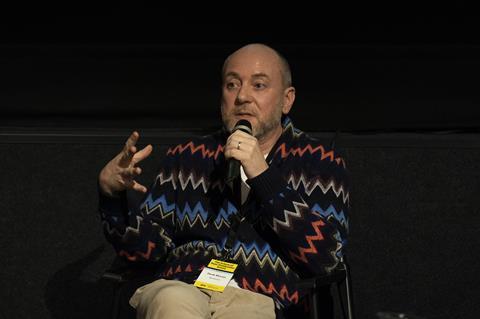
DM We’re always looking for people who are prepared to push the envelope in terms of what technology can do. For The Masked Singer, we film the show in the studio, so the way it looks is pretty much locked in.
But then there’s a lot of CGI involved in the production, things that we could never do in a studio, so it’s about people who are spending 50% of their edit time now being able to use this really complicated CGI software. It’s all about post houses keeping up with the pace of change.
We want to see what new technologies are coming out or what new technologies can be brought into those edit suites and just make sure that we are adaptive. And as costs come down, so certain effects are becoming more doable at the TV level rather than just at a cinematic level.
Pricing and quality
TP We have a budget for our Channel 5, high-volume shows, and then a bit of a leap up for our high-end projects where you go to the higher-end places and get the best colourist and the best dubbing mixers.
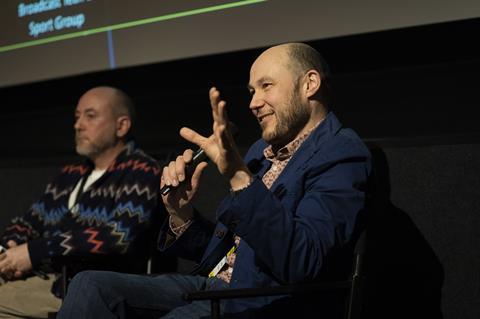
The demand for visual quality is huge these days because everybody is sitting at home watching on a 60-inch screen. Almost everything is shot pretty nicely, even the lower-end productions, and then it’s watched on a huge screen in HD, so you need that quality all the way through.
One interesting development is the possibility of deficit funding through post houses – where a post house will give you post for free or at a discount, and then we’ll do a deal on the back end.
With budgets being stretched at the moment, that is a really interesting model that could be explored more.
DM Pricing is always a key issue because obviously we’ve all got budgets to satisfy. For us, it is important that we get the right people for the job.
We disaggregate the costs much more now, rather than just agreeing on a package with a post house – we’re much more prepared to pay for great colourists or great dubbing as that’s really important.
There was a fashion for a while where some companies decided to take post-production in-house, thinking it would be a great way for them to make money. To a certain extent, that cut the bottom market out of the industry a little bit. But what you realise when you’re working in that way is that the technology needs to be updated constantly.
So it’s actually quite a large investment for the company if you’re doing your own post. As a result, I feel that it has now gone out of fashion a little bit. I still think that specific post-production houses have their place at every price point.
TP Sorry to be unfashionable but we do have some in-house post and we use it for our lower-budget, higher-volume output. However, we wouldn’t do our current affairs in-house, and we wouldn’t do anything that is delivering close to transmission, and we always do our final post out of house.
Broadcaster relationships
DM I often wonder, if we tried to do post on The Masked Singer in Glasgow, how would that conversation have gone down with ITV? I think they would have been very nervous. And if they were nervous, that makes my job much harder because they are scrutinising everything, and anything that goes wrong is my call. It’s about everyone feeling that there is some comfort in the relationship.
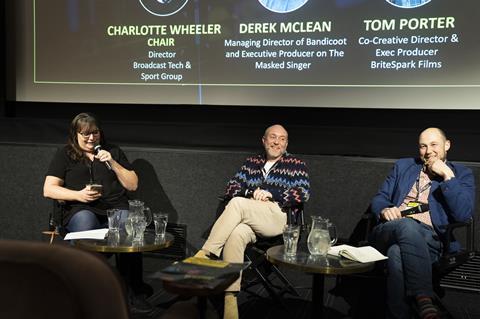
TP Panorama has a very strong relationship with one particular post house and always want us to do what we do with them. Beyond that, it’s about the relationship the post house has with the delivery side of things at the channel, so that when things don’t quite work out, you can trust that relationship and that the broadcaster trusts that post house to deliver the finished show.
Being pampered
TP We spend a lot of time and a lot of biscuits in final post suites. And you don’t just want a plate of Malted Milk, do you? You want something coated in chocolate. Biscuits are really important.
DM We do like a Pret breakfast and we always insist on it. But they charge us for it. I am so demanding, I used to take in Dulux paint charts for the colour of my tea. It used to piss me off when a runner gave me weak tea.
Post house necessities
DM A top creative team. Tea. And breakfast.
TP I think it’s flexibility and trust. And the biscuits.








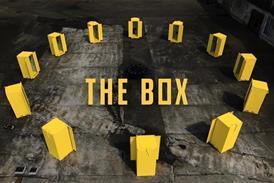

















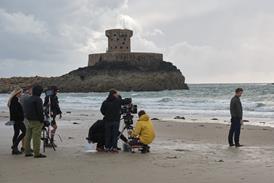
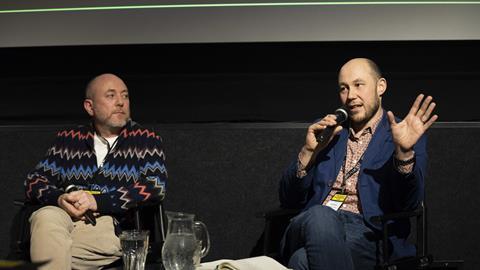






No comments yet